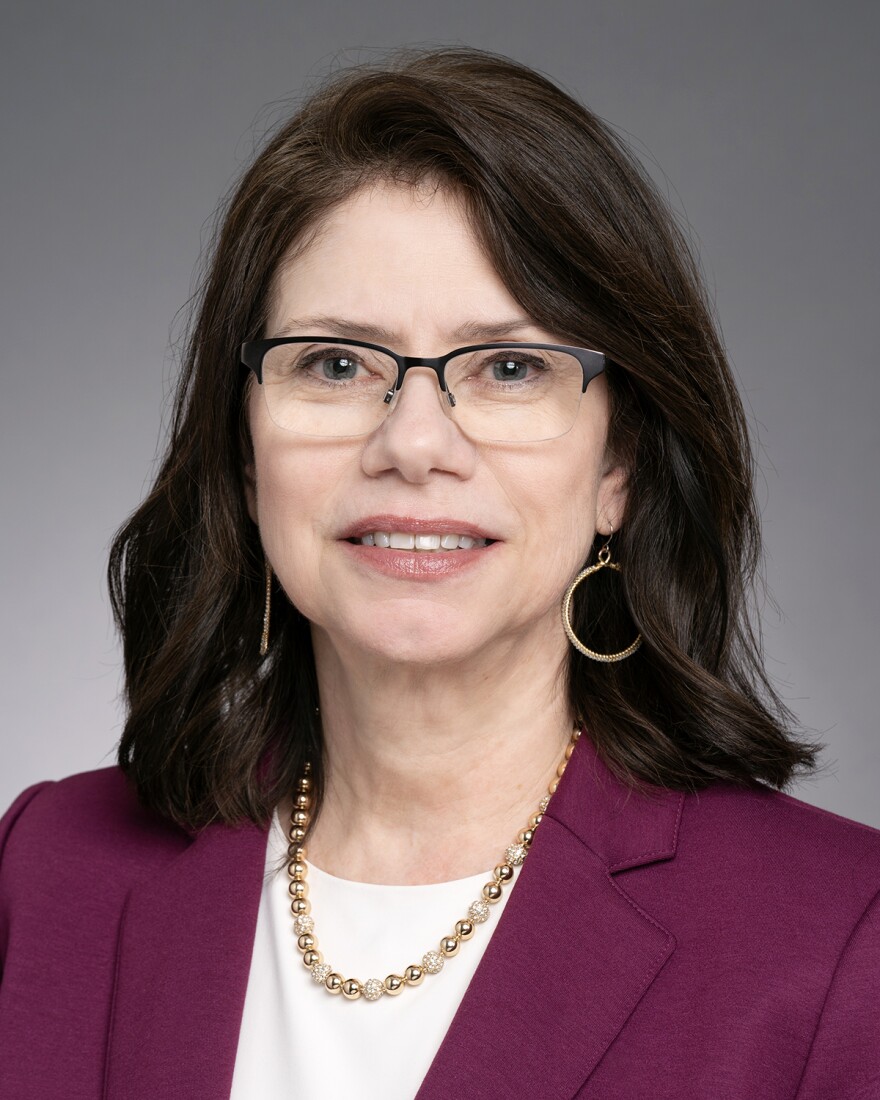BEMIDJI — Minnesota’s Senate Majority Leader Kari Dziedzic traveled through Northern Minnesota late last week to hear about goals for the next session as well as highlight accomplishments earlier this year.
After a historic session that included widescale boosts in funding for education, child care, housing and local government aid, Dziedzic said the DFL-led Minnesota Legislature aimed to serve Minnesotan communities, large and small.

“I think Bemidji is going to probably get about $330,000 more in LGA (local government aid),” Dziedzic said.
“We did county program aid, so Beltrami County will get about $900,000 more. Some of the other local counties will get anywhere from $250,000 more to over $700,000. We had one-time money at the Capitol, and so we thought a good use of that one-time money would be one-time public safety aid for communities.”
Dziedzic said local communities would then have the ability to analyze local needs and decide how to best use the funds.

Bemidji, among other communities, faces a very tight housing market across the board, but the needs are felt more keenly in affordable housing. Bemidji has seen the shuttering of subsidized multi-family units, starting with Ridgeway Court in 2022 and Red Pine Estates in July.
“That was front page news down in the metro and it's scary,” Dziedzic said. “I mean, to all of a sudden have to be told, ‘Your building is not safe, you have to leave now.’ Where would you even start?
“I'm glad that the building didn't collapse and no one was injured. But you know, that's just a wakeup call to everybody.”
Dziedzic pointed to the NOAH program, which stands for Naturally Occurring Affordable Housing. She said money in this program is intended to help stabilize buildings and to accomplish required maintenance.
The NOAH program also aims to prevent the quick transfer of subsidized units, when another property management company could upgrade the facility then drastically increase the rent.
The NOAH program is just part of the state’s investment into housing infrastructure.
“This year we put $1 billion into housing,” Dziedzic said, adding the state typically budgets for $10 million in the housing bill.
"We heard that was such an issue, if people want to get back to work, we want to make sure they have that opportunity, and access to quality child care is key."State Sen. Kari Dziedzic
“We felt it was a good use of one-time money. We know there is a housing shortage across the state and how that just impacts everybody. First of all, if you think of — if you don't have a place to go home, it just impacts your entire life. How do you function day-to-day?
“There are studies that show stable homes help kids in school, stable homes help with health outcomes, stable homes give you a base so that you can actually do better. Finding a job, keeping their job, and actually doing that job. Housing is just so critical to everything,” Dziedzic said.
Child care is another element to Bemidji’s tough labor market. Greater Bemidji, the local economic development nonprofit, found in a study that the Bemidji area has consistently faced a shortage of about 1,200 child care slots for children under the age of 5.
The state, as a whole, estimates a need for 80,000 more slots. These studies do not account for informal arrangements, such as grandparents or other relatives, which national statistics suggest represent about 21% of primary child care arrangements.
“We just did so much. We talked about child care and there's child care pieces, you know, in the education bill, there's child care pieces in the jobs bill, there's child care pieces in the Health and Human services bill,” Dziedzic said.
“We heard that was such an issue, if people want to get back to work, we want to make sure they have that opportunity, and access to quality child care is key.”
Bemidji Area Schools also received a fair amount of funding, especially in transportation. ISD No. 31 is geographically two-thirds the size of Rhode Island, often funding transportation through its general fund when the state’s transportation formula consistently falls short.

“Right now, we're only paying about 18% of the uncompensated costs on transportation for school districts,” Dziedzic said. She noted changes to the state’s transportation formula will increase that figure to 35%.
Bemidji Area Schools faces a transportation shortfall of about $1 million every year, with the new funding anticipated to reduce the shortfall by $185,000.
The legislative session also brought about $700 million more into the per-pupil formula funding.
Bemidji School District has had two unsuccessful levy increase referendums in recent years to increase its operating formula
Bemidji Area Schools Superintendent Jeremy Olson said funding increases are a big step forward for the district, which has faced an operating deficit due to covering expenses in transportation and special education.
"We have multiple millions of dollars, $4 to 5 million of cross-subsidy, meaning the difference between the revenue and expenses on special education," explained Olson.
"We have to take out of general education to fill in for the the losses and special education because the revenues never meet the expenditures," he said.
Olson's breakdown of the state legislative dollars mean an additional $2.2 million covered for special education.
“We have a way to go, but just that additional money will help districts like Bemidji and that helps everybody,” Dziedzic said. “Because if it's not coming from the state, it goes on your property taxes and that's a burden for a lot of people.”







